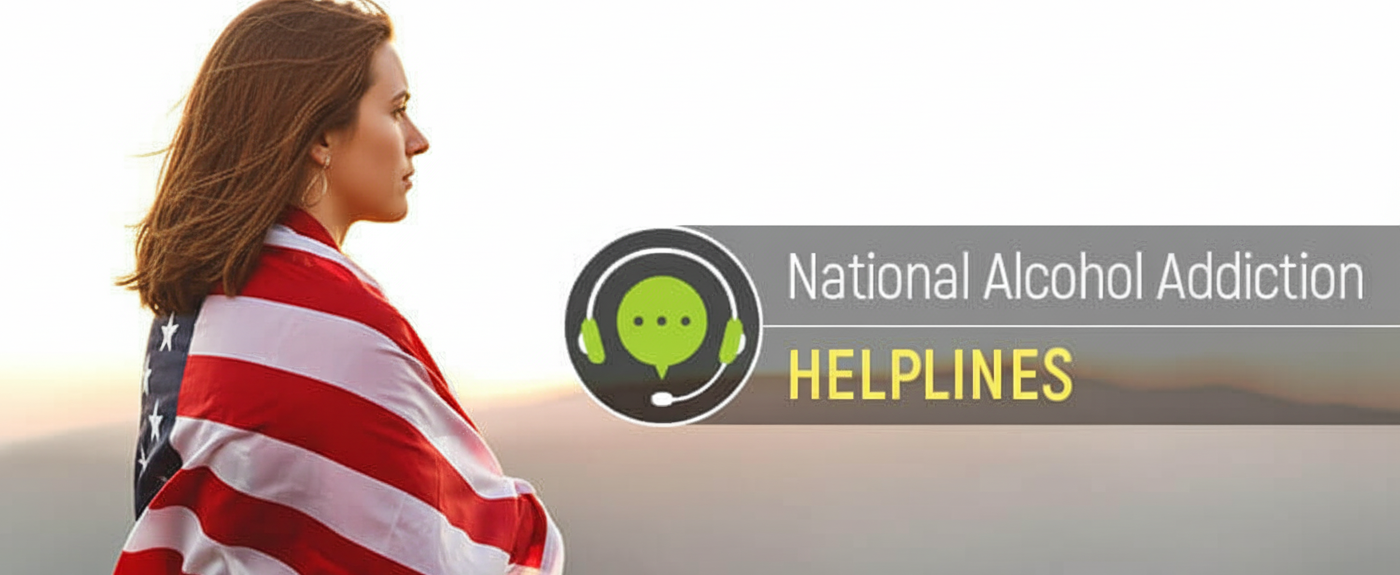An alcohol addiction hotline can be a lifesaving resource for individuals struggling with drinking problems. These numbers are typically toll-free and available 24/7, connecting callers to compassionate representatives who provide guidance, emotional support, and information about treatment options.
If you’re wondering which hotline to call for alcohol cravings or whether calling is free, here’s everything you need to know about getting help over the phone.
National Alcohol Helpline Numbers
Several nationwide hotlines in the United States offer assistance for those affected by alcohol misuse:
- 911: For any life-threatening emergency, including alcohol poisoning or severe withdrawal symptoms.
- NCADD (National Council on Alcoholism and Drug Dependence): Call 1-800-NCA-CALL (622-2255) for education, resources, and hope for those with drinking problems.
- NIDA & SAMHSA Helpline: Call 1-800-662-HELP (4357) to access a 24-hour service that connects individuals to local treatment options and clinical trials.
- National Poison Control Center: Call 1-800-222-1222 for free, confidential advice on alcohol poisoning and other substance-related emergencies.
- National Suicide Prevention Lifeline: Call 1-800-273-TALK (8255) if in emotional crisis. Trained counselors provide immediate, free support.
- Alcoholics Anonymous (AA): Call 1-212-870-3400 to speak with volunteers who have experienced alcoholism and can share guidance and encouragement.
- Covenant House: Call 1-800-999-9999 for support tailored to youth and families, particularly those facing homelessness or high-risk situations.
In addition to these national options, every state has its own local alcohol abuse hotline numbers for more community-specific assistance.
What Is an Alcohol Abuse Hotline?
An alcohol helpline is a confidential phone service where callers receive immediate, judgment-free guidance from trained counselors. Most hotlines operate 24/7 and are completely toll-free, meaning there’s no cost to speak with someone.
Helplines can provide:
- Help recognizing the signs of alcohol use disorder
- Emotional support and crisis intervention
- Recommendations for local treatment programs
- Information on detox options and rehab facilities
- Guidance on costs, insurance coverage, and payment assistance
This is a safe way to get professional advice, especially for those who are not ready to visit a treatment center in person or fear judgment from family, friends, or coworkers.
Why Call an Alcohol Hotline?
Some of the most common reasons to call include:
- Understanding whether your drinking habits may indicate addiction
- Learning about the dangers of continued alcohol misuse
- Finding local outpatient or inpatient rehab options
- Getting strategies to overcome cravings
- Asking about detox programs or withdrawal management
- Accessing faith-based recovery resources
- Receiving emotional support during difficult moments
- Getting guidance on helping a friend or family member struggling with alcohol
Common Concerns About Calling
Many people hesitate to call because of misconceptions. Here’s the truth:
- Cost: Most alcohol hotlines are free and confidential.
- Forced Action: You won’t be forced into treatment — any next steps are entirely voluntary.
- Legal Issues: You won’t get in trouble for admitting to drinking or substance use.
- Privacy: Callers may remain anonymous; no personal information is required unless you choose to share it.
What Questions Will They Ask?
When you call, the counselor may ask:
- Are you currently in a crisis or medical emergency?
- What is your age and location?
- What substances do you use, and how often?
- How long have you been drinking?
- Do you have co-occurring health or mental health conditions?
- Do friends or family know about your drinking?
- Are you ready to begin treatment?
These questions help the representative connect you with the most appropriate resources.
Step-by-Step Guide to Calling an Alcohol Helpline
- Assess the Situation: If it’s an emergency (alcohol poisoning, risk of self-harm), call 911 immediately. Otherwise, choose the hotline that matches your needs.
- Prepare Your Questions: Write down what you want to ask — treatment options, insurance coverage, program length, and local facility availability.
- Call the Number: Follow any automated prompts (language, region, etc.) to be routed correctly.
- Answer Honestly: The more accurate your answers, the more helpful the advice will be.
- Take Notes: Write down any referrals, treatment options, or next steps recommended.
Your First Step Toward Recovery
Making a call to an alcohol addiction hotline can be the first and most critical step toward regaining control of your life. Compassionate, knowledgeable counselors are available to guide you — whether you need treatment information, emotional support, or simply someone to talk to.
Confidential, free, and available at any time, these hotlines help thousands of Americans every day start their journey toward recovery and a healthier future.
